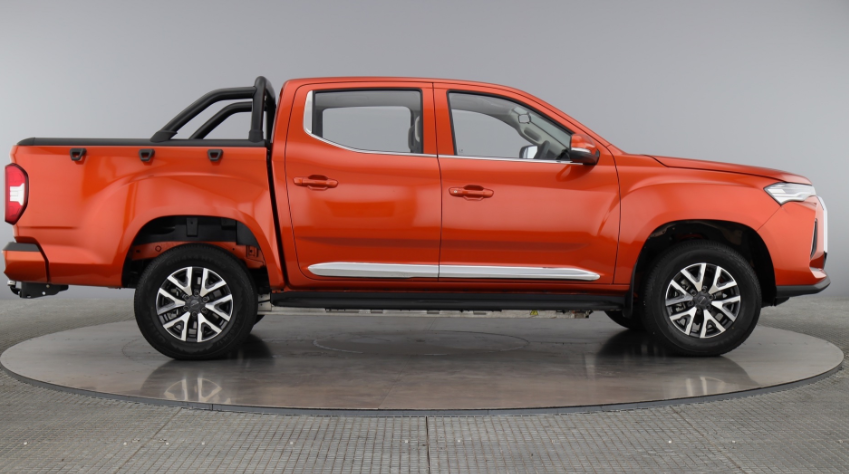New tax guidance that will categorise double cab pick-ups as company cars rather than vans from July risks impacting their forecourt appeal.
The reclassification of double cab pick-ups will have potential tax liabilities regarding vehicle classification for benefit-in-kind (BIK) tax purposes.
The decision follows prolonged discussions over whether certain vehicles should be considered vans or company cars, with the Coca-Cola case being cited as an example where HMRC prevailed in classifying certain models as cars rather than vans.
Company cars generally incur higher Income Tax and National Insurance Contributions (NICs) compared to company vans, including associated fuel benefits.
Mike Hawes, CEO of the Society of Motor Manufacturers and Traders (SMMT), expressed concern over the decision, highlighting its potential negative effects on businesses, particularly in rural and construction sectors.
“HMRC’s decision to tax them as cars rather than commercial vehicles for benefit-in-kind (BIK) purposes will raise costs significantly, and make them an untenable choice for many.
“The move risks stalling the overall market and its decarbonisation, as businesses will be likely to hold on to older vehicles for longer.”
He added: “With the new rules due in July, there is insufficient time for industry to adapt to such a major policy change, and the sector believes that it would be remain fairer and simpler to use a vehicle’s type approval as the basis for all tax purposes.”
The new guidance, published by HMRC, clarifies that double cab pick-ups will be assessed individually to determine their classification as either a car or a van for tax purposes.
This assessment will consider the vehicle's construction and primary suitability based on a two-part test outlined in the Employment Income Manual.
Matt Hammond from the Association of Fleet Professionals (AFP) welcomed the clarity brought by HMRC's decision but acknowledged that some fleets and drivers might find it limiting.
“Some fleets and drivers will no doubt feel this unfairly removes some vehicle choices they would like to make but bringing the rules into line with VAT makes some sense.”
HMRC has introduced transitional arrangements to mitigate immediate impacts on existing fleet vehicles and orders. The transition period provided by HMRC is also aimed at supporting both employers and manufacturers to align with the new regulations.
John Messore from Innovation Tax and Mileage Consulting Group outlined the potential tax burdens for employees under the new rules.
The most common double cab pick-up in the UK is the Ford Ranger with a list price of circa £60,000 and CO2 emissions of over 200g/km putting it squarely in the 37% tax bracket meaning a BIK of circa £22,200 a year leading to employee tax of £8,880 a year for a 40% taxpayer or £13,320 a year at 60% tax or £1,110 a month.”
He continued: “If free private fuel is also provided (which it probably should be historically as it is currently a no brainer at such low levels of tax) that is a combined benefit of £32,486.
“This will have an additional Class1A NIC cost of £4,483 to the employer, whilst the total tax for a higher rate taxpayer is £12,994 per annum.”
He explained: “Under the current rules provided the payload of the pick-up is 1 tonne or over then by concession it is taxed as a van benefit in kind meaning £757 fuel BIK and £3,960 benefit for the van.
“Under the new rules, which HMRC states is the correct default position following the Coca Cola case there will be an extra £15k p.a. tax and NIC.
















Login to comment
Comments
No comments have been made yet.